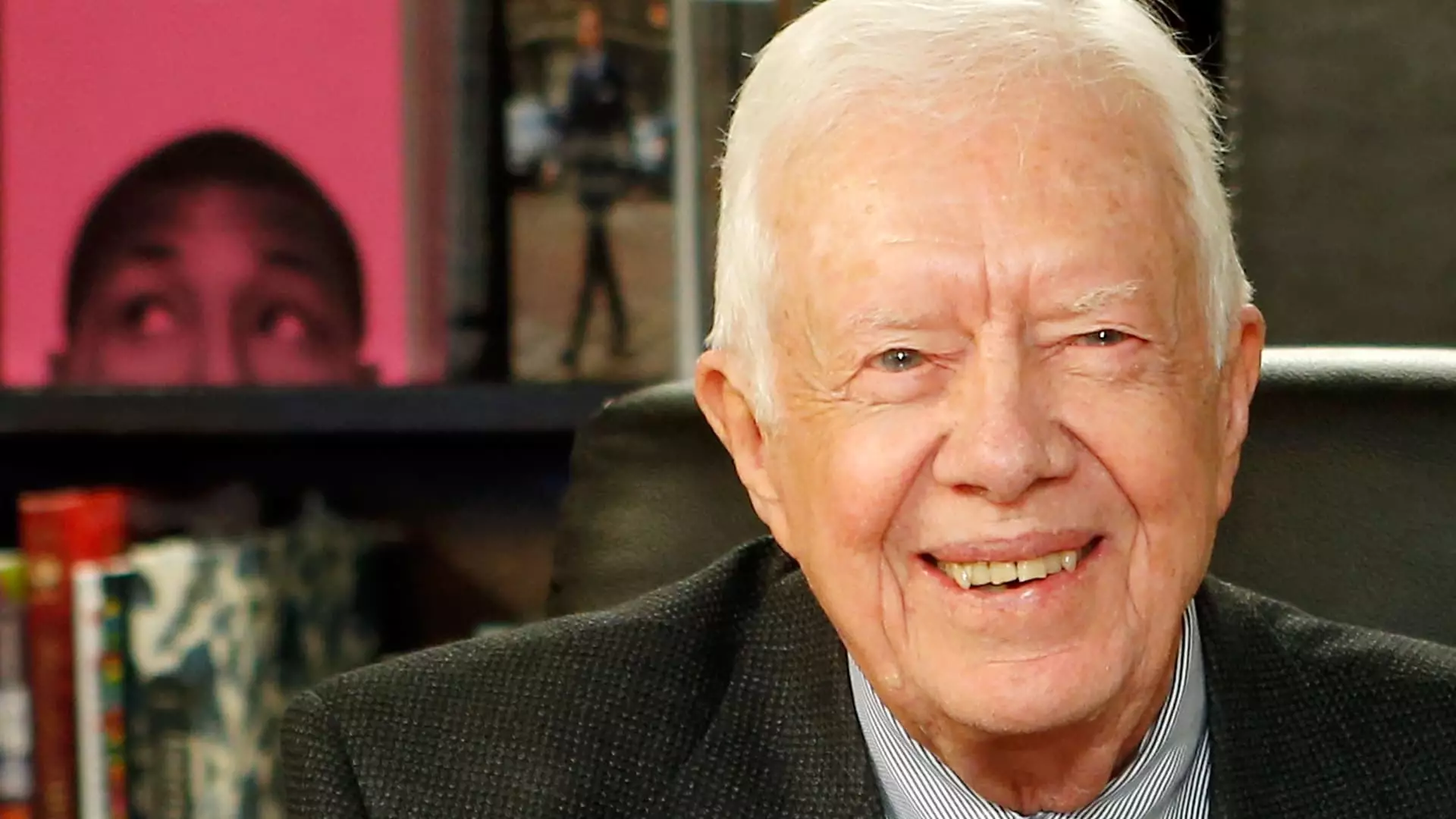Jimmy Carter, the 39th President of the United States, entered the political arena with a vision deeply rooted in moral values, peace, and human rights. His political journey embodies a unique approach that not only sought to uplift the American spirit but also foster a global sense of community and ethical governance. This article explores Carter’s profound contributions to society, his reflections on leadership, and his unwavering commitment to humanitarian ideals, which have left an indelible mark on both American and world history.
Carter famously remarked, “I’ve looked on a lot of women with lust,” during an interview with Playboy magazine, a statement that sparked substantial controversy yet revealed his candidness and humanity. This unabashed honesty reflected a broader philosophical perspective he offered: the importance of acknowledging moral imperfections while striving for a greater good. His candidness positioned him not just as a political figure but as an individual relatable to the moral struggles faced by everyday citizens.
During his inauguration on January 20, 1977, he declared that “our moral sense dictates a clear-cut preference for these societies which share with us an abiding respect for individual human rights.” This sentiment encapsulates his presidency’s core mission—advancing human rights as intrinsic to both national strength and global responsibility. Under his leadership, the United States took a stand against oppressive regimes and advocated for democracy, especially in Latin America, where Carter believed in transitioning away from dictatorial governance.
One of the most pressing issues of Carter’s presidency was the energy crisis. In his address on April 18, 1977, he equated the challenge of energy conservation to the “moral equivalent of war,” advocating for a united national effort to address the crisis. This call to action resonated deeply, urging Americans to come together not in military aggression but in a commitment to sustainability and innovative solutions. His forward-thinking policies laid the groundwork for future energy initiatives and sought to instill a sense of duty within the citizenry to prioritize the common good over individual convenience.
Carter’s tenure is often remembered for his peaceful diplomacy. He famously brokered the Camp David Accords, which aimed to resolve the long-standing conflict between Egypt and Israel. Reflecting on his presidency during a 2014 interview, Carter expressed immense pride in his efforts to promote peace and human rights, indicating that these endeavors were the guiding forces of his political life. His commitment to a peaceful resolution, even when faced with pressure to act militarily, showcased his moral fortitude. He resisted the temptation to respond aggressively to the Iranian hostage crisis, emphasizing the value of every human life.
His Farewell Address on January 14, 1981, reiterated the idea that “our American values are not luxuries but necessities.” In urging the nation to uphold its values at home and abroad, he highlighted how a just society creates cohesion and strength, transcending mere material prosperity.
The moral dilemmas of warfare weigh heavily on Carter’s conscience, as articulated in his Nobel Peace Prize lecture in 2002. He pointed out the necessity of dehumanizing opponents in conflicts, a process that undermines every religious belief. This insight reveals his profound understanding of the ethical implications surrounding war, challenging future leaders to pursue peace with compassion rather than aggression. His words are a call to recognize the humanity in all individuals, a lesson that remains relevant in today’s geopolitical landscape.
In recent years, Carter has remained a voice of reason and compassion, even in the wake of political turbulence in the United States. Following the events of January 6, 2021, he described the situation as a “national tragedy,” emphasizing his hope for unity and peaceful resolutions. His lifelong commitment to civil discourse and democratic values stands as a reminder of the ethical responsibilities of leadership.
Jimmy Carter’s legacy transcends the bounds of traditional political expectations. His unwavering commitment to peace, human rights, and ethical governance invites both admiration and introspection. From his struggle against authoritarian regimes to his call for sustainability in energy usage, Carter’s presidency is a testament to the power of moral leadership. As he reflects on his life with peace, joy, and gratitude, he leaves us with a poignant message: that the true measures of success are not found in power alone, but in the compassionate actions we take for the betterment of all humanity. Through his life and work, Jimmy Carter offers a profound legacy of hope, dignity, and respect that continues to inspire future generations.


Leave a Reply